Fleurs du Mal Magazine


Or see the index
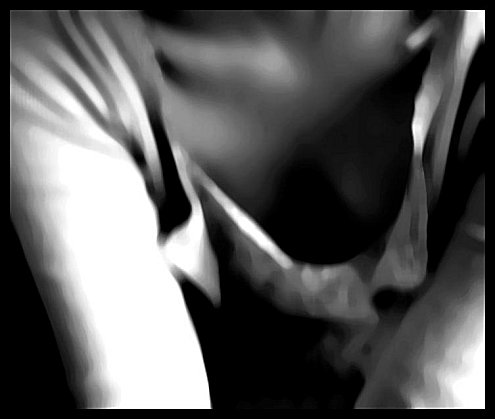
Jef van Kempen gedicht
R e q u i e m
O, dood, bedrieglijk, bedrieglijk scharminkel.
Daar waar (van aangezicht tot aangezicht)
onsterfelijke schoonheid onverdraaglijk wordt,
heult huichelachtige liefde met U:
spiegeltje, spiegeltje aan de wand,
wie is de mooiste van dit land?
Voor wie wit is, wit is als sneeuw,
is het lot van een graf in de zwarte,
in de zwarte aarde te zwaar.
O, dood, bedrieglijk, bedrieglijk scharminkel.
Zeven maal zeven maal zeven maal
zoveel niet-aflatende rouw om
deze nietsontziende vergankelijkheid.
Bij dit eenzame glazen graf stijgt een
woordloos gejammer op naar een verre,
naar een verre hemel:
die spiegel van eeuwigheid.
![]()
Jef van Kempen: Laatste bedrijf – gedichten 1963-2008
Uitgeverij Art Brut – Postbus 117 – 5120 AC Rijen – ISBN: 978-90-76326-04-7
![]()
© KEMP=MAG poetry magazine
More in: Kempen, Jef van
.jpg)
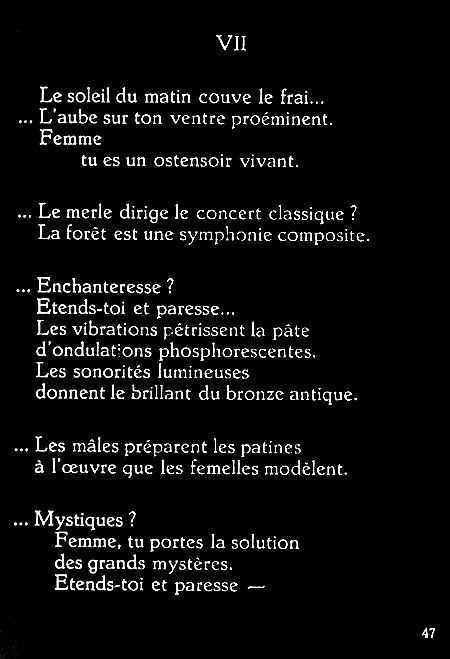

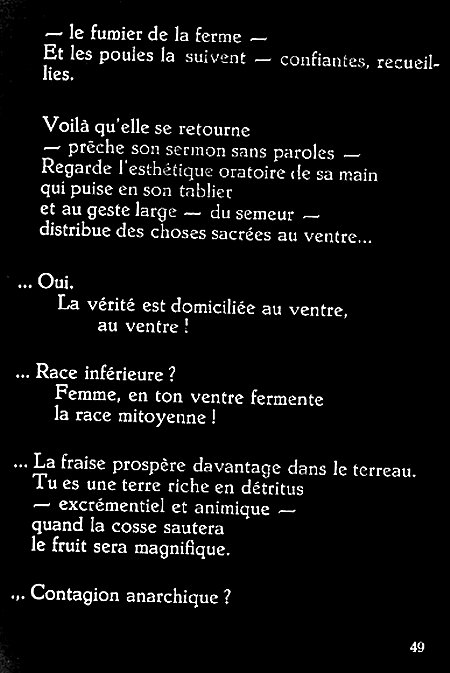

Clément Pansaers
(1885-1922)
L’APOLOGIE DE LA PARESSE 1917
Chapitre VII
![]()
KEMP=MAG POETRY MAGAZINE
More in: Pansaers, Clément
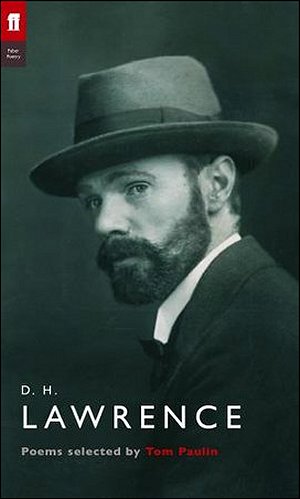
D.H. Lawrence
(1885-1930)
To Women, As Far As I’m Concerned
The feelings I don’t have I don’t have.
The feelings I don’t have, I won’t say I have.
The felings you say you have, you don’t have.
The feelings you would like us both to have, we
neither of us have.
The feelings people ought to have, they never have.
If people say they’ve got feelings, you may be pretty
sure they haven’t got them
So if you want either of us to feel anything at all
you’d better abandon all idea of feelings altogether.
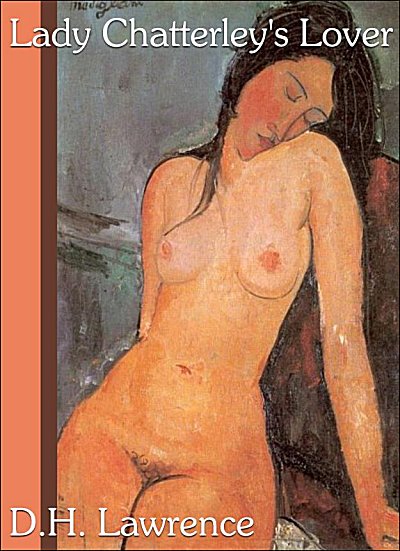
Intimates
Don’t you care for my love? she said bitterly.
I handed her the mirror, and said:
Please address these questions to the proper person!
Please make all request to head-quarters!
In all matters of emotional importance
please approach the supreme authority direct!–
So I handed her the mirror.
And she would have borken it over my head,
but she caught sight of her own refection
and that held her spellbound for two seconds
while I fled.
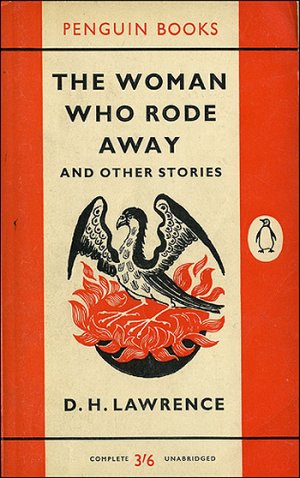
My Naughty Book
They say I wrote a naughty book
With perfectly awful things in it,
putting in all the impossible words
like b—- and f— and sh–.
Most of my friends were deeply hurt
and haven’t forgiven me yet;
I’d loaded the camel’s back before
with dirt they couldn’t forget.
And now, no really, the final straw
was words like sh– and f–!
I heard the camel’s back go crack
beneath the weight of muck.
Then out of nowhere rushed John Bull,
that mildewed pup, good doggie!
squeakily bellowing for all he was worth,
and slavering wet and soggy.
He couldn’t bite ’em he was much too old,
but he made a pool of dribblings;
so while the other one heaved her sides
with moans and hollow bibblings
he did his best, the good old dog
to support her, the hysterical camel,
and everyone listend and loved it, the
ridiculus bimmel-bammel.
But still, one has no right to take
the old dog’s greenest bones
that he’s buried now for centuries
beneath England’s garden stones.
And, of course, one has no right to lay
such words to the camel’s charge
when she prefers to have them left
in the W.C. writ large.
Poor homely words, I must give you back
to the camel and the dog,
for her to mumble and him to crack
in secret, great golliwog!
And hereby I apologise
to all my foes and friends
for using words they privately keep
for their own immortal ends.
And henceforth I will never use
more than the chaste, short dash;
so do forgive me! I sprinkle my hair
with grey, repentant ash.

kemp=mag poetry magazine
More in: Lawrence, D.H.
.jpg)




Clément Pansaers
(1885-1922)
L’APOLOGIE DE LA PARESSE 1917
Chapitre VI
![]()
KEMP=MAG POETRY MAGAZINE
More in: Pansaers, Clément
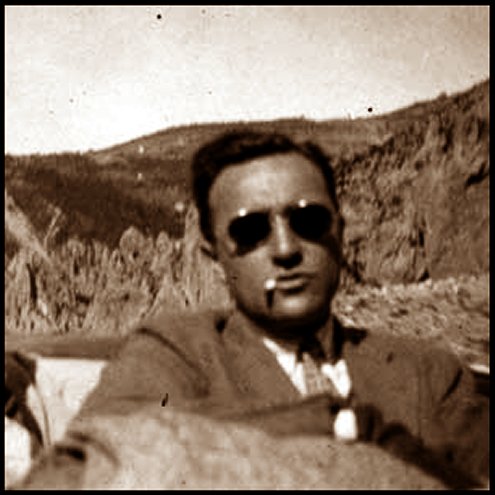
J a c q u e s R i g a u t
(1898-1929)
Je serai sérieux comme le plaisir
Il n’y a pas de raisons de vivre, mais il n’y a pas de raisons de mourir non plus. La seule façon qui nous soit laissée de témoigner de notre dédain de la vie, c’est de l’accepter. La vie ne vaut pas qu’on se donne la peine de la quitter. On peut par charité l’éviter à quelques-uns mais à soi-même ? Le désespoir, l’indifférence, les trahisons, la fidélité, la solitude; la famille, la liberté, la pesanteur, l’argent, la pauvreté, l’amour, l’absence d’amour, la syphilis, la santé, le sommeil, l’insomnie, le désir, l’impuissance, la platitude, l’art, l’honnêteté, le déshonneur, la médiocrité, l’intelligence, il n’y a pas là de quoi fouetter un chat. Nous savons trop de quoi ces choses sont faites pour y prendre garde.
Chaque fois que j’ai pu tromper la confiance d’un ami, je crois n’y avoir pas manqué. Mais le mérite est mince à railler la bonté, à berner la charité, et le plus sûr élément de comique c’est de priver les gens de leur petite vie, sans motifs, pour rire.
Les enfants, eux, ne s’y trompent pas et savent tout le plaisir qu’il y a à jeter la panique dans une fourmilière, ou à écraser deux mouches surprises en train de forniquer.
Pendant la guerre, j’ai jeté une grenade dans une cagna où deux camarades s’apprêtaient, avant de partir en permission. Quel éclat de rire en voyant le visage de ma maîtresse, qui s’attendait à recevoir une caresse, s’épouvanter quand je l’ai eu frappée de mon coup de poing américain, et son corps s’abattre quelques pas plus loin; et quel spectacle, ces gens qui luttaient pour sortir du Gaumont Palace, après que j’y eus mis le feu ! Ce soir vous n’avez rien à craindre, j’ai la fantaisie d’être sérieux.
Il n’y a évidemment pas un mot de vrai dans cette histoire et je suis le plus sage petit garçon de Paris, mais je me suis si souvent complu à me figurer que j’avais accompli ou allais accomplir d’aussi honorables exploits, qu’il n’y a pas là non plus un mensonge.
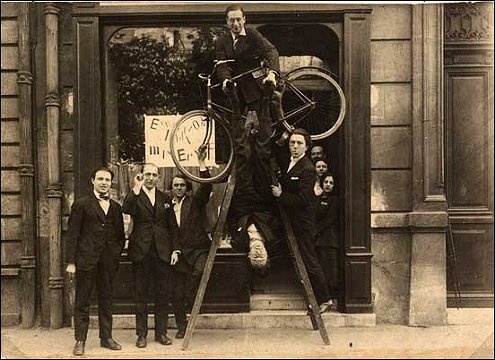
? ? ?
Demande d’emploi
Il y a des gens qui font de l’argent, d’autres de la neurasthénie, d’autres des enfants. Il y a ceux qui font de l’esprit. Il y a ceux qui font l’amour, ceux qui font pitié.
Depuis le temps que je cherche à faire quelque chose ! Il n’y a rien à y faire : il n’y a rien à faire.
Peut-être est-ce ma voie. Je bois, je suis devenu un peu ivrogne; notez-le, je perds rarement ma dignité. Je bois à plusieurs, avec les femmes surtout.
Et je bois seul, avec de grands hoquets.
Camarades ! il n’y a pas de camarades. Je ne vous aime pas. Vous pouvez vivre et vous amuser, ça m’est égal.
– Il n’y a rien de possible, pas même le suicide. (…) Le suicide est, quoi qu’on veuille, un acte-désespoir ou un acte-dignité. Se tuer, c’est convenir qu’il y a des obstacles effrayants, des choses à redouter, ou seulement à prendre en considération.
– Selon vous le suicide est un pis-aller.
– Exactement. Et un pis-aller à peine moins antipathique qu’un métier ou qu’une morale.
Choisir un point qu’on appellera commencement; on ne le reconnaît qu’à ce qu’il touche la fin et qu’il sera partout où sera la fin, commandé par elle.
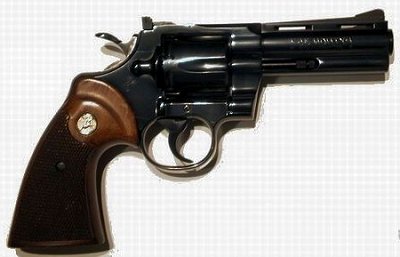
Pensées
Ménagez la mort, mon ami. Disposez un coussin sur son siège. Distrayez la, flattez la, faites lui la vie agréable, qu’elle n’aille pas vous quitter.
Cette personne, la plus méconnue, c’est d’elle que vous recevrez tout, c’est votre seul gage d’existence. Privé de sa compagnie, il ne vous reste plus qu’à jouer aux billes.
Splendeur de ma voix qui s’élève seule, seule, dédaigneuse de toute oreille, faite pour aucune. Je frémis au sommet du mot seul, sur une limite aussi pathétique que le tournoiement du derviche hurleur, ou du chancellement du boxeur avant qu’il s’écroule, ou de l’avion qui pique en flammes.
Depuis vingt heures inquiet, mal à l’aise parce qu’une petite fille sans beauté et sans profondeur n’a pas témoigné assez de bonne grâce au téléphone. A chaque bout du fil, deux êtres pleins – pas d’un dépit de coquetterie – de la déception un peu rancunière de voir qu’un être qu’on a failli aimer y a manqué aussi.
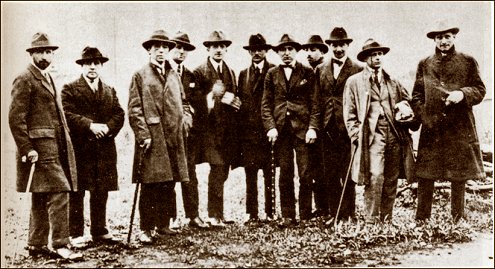
KEMP=MAG POETRY MAGAZINE – magazine for art & literature
More in: Rigaut, Jacques

L e w i s C a r r o l l
(1832-1898)
E c h o e s
Lady Clara Vere de Vere
Was eight years old, she said:
Every ringlet, lightly shaken, ran itself in golden thread.
She took her little porringer:
Of me she shall not win renown:
For the baseness of its nature shall have strength to drag her
down.
“Sisters and brothers, little Maid?
There stands the Inspector at thy door:
Like a dog, he hunts for boys who know not two and two are four.”
“Kind words are more than coronets,”
She said, and wondering looked at me:
“It is the dead unhappy night, and I must hurry home to tea.”
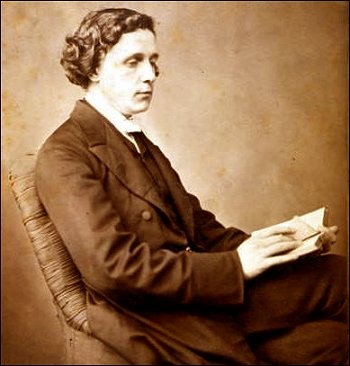
kempis poetry magazine
More in: Archive C-D, Carroll, Lewis, Children's Poetry
.jpg)





Clément Pansaers
(1885-1922)
L’APOLOGIE DE LA PARESSE 1917
Chapitre V
![]()
KEMP=MAG POETRY MAGAZINE
More in: Pansaers, Clément
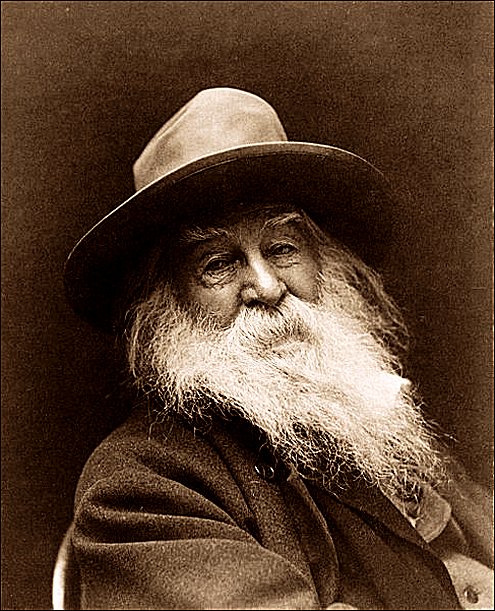
W a l t W h i t m a n
(1819-1892)
T h e P o e t
1
Now list to my morning’s romanza;
To the cities and farms I sing, as they spread in the sunshine before me.
2
A young man came to me bearing a message from his brother;
How should the young man know the whether and when of his brother?
Tell him to send me the signs.
And I stood before the young man face to face, and took his right hand in
my left hand, and his left hand in my right hand,
And I answered for his brother, and for men, and I answered for THE POET,
and sent these signs.
Him all wait for–him all yield up to–his word is decisive and final,
Him they accept, in him lave, in him perceive themselves, as amid light,
Him they immerse, and he immerses them.
Beautiful women, the haughtiest nations, laws, the landscape, people,
animals,
The profound earth and its attributes, and the unquiet ocean (so tell I my
morning’s romanza),
All enjoyments and properties, and money, and whatever money will buy,
The best farms–others toiling and planting, and he unavoidably reaps,
The noblest and costliest cities–others grading and building, and he
domiciles there,
Nothing for any one but what is for him–near and far are for him,–the
ships in the offing,
The perpetual shows and marches on land, are for him, if they are for
anybody.
He puts things in their attitudes;
He puts to-day out of himself, with plasticity and love;
He places his own city, times, reminiscences, parents, brothers and
sisters, associations, employment, politics, so that the rest never
shame them afterward, nor assume to command them.
He is the answerer;
What can be answered he answers–and what cannot be answered, he shows how
it cannot be answered.

3
A man is a summons and challenge;
(It is vain to skulk–Do you hear that mocking and laughter? Do you hear
the ironical echoes?)
Books, friendships, philosophers, priests, action, pleasure, pride, beat up
and down, seeking to give satisfaction;
He indicates the satisfaction, and indicates them that beat up and down
also.
Whichever the sex, whatever the season or place, he may go freshly and
gently and safely, by day or by night;
He has the pass-key of hearts–to him the response of the prying of hands
on the knobs.
His welcome is universal–the flow of beauty is not more welcome or
universal than he is;
The person he favours by day or sleeps with at night is blessed.
Every existence has its idiom–everything has an idiom and tongue;
He resolves all tongues into his own, and bestows it upon men, and any man
translates, and any man translates himself also;
One part does not counteract another part–he is the joiner–he sees how
they join.
He says indifferently and alike, "How are you, friend?" to the President
at his levee,
And he says, "Good-day, my brother!" to Cudge that hoes in the sugar-
field,
And both understand him, and know that his speech is right.
He walks with perfect ease in the Capitol,
He walks among the Congress, and one representative says to another, "Here
is our equal, appearing and new."
4
Then the mechanics take him for a mechanic,
And the soldiers suppose him to be a soldier, and the sailors that he has
followed the sea,
And the authors take him for an author, and the artists for an artist,
And the labourers perceive he could labour with them and love them;
No matter what the work is, that he is the one to follow it, or has
followed it,
No matter what the nation, that he might find his brothers and sisters
there.
The English believe he comes of their English stock,
A Jew to the Jew he seems–a Russ to the Russ–usual and near, removed from
none.
Whoever he looks at in the travellers’ coffee-house claims him;
The Italian or Frenchman is sure, and the German is sure, and the Spaniard
is sure, and the island Cuban is sure;
The engineer, the deck-hand on the great lakes, or on the Mississippi, or
St. Lawrence, or Sacramento, or Hudson, or Paumanok Sound, claims him.
The gentleman of perfect blood acknowledges his perfect blood;
The insulter, the prostitute, the angry person, the beggar, see themselves
in the ways of him–he strangely transmutes them,
They are not vile any more–they hardly know themselves, they are so grown.
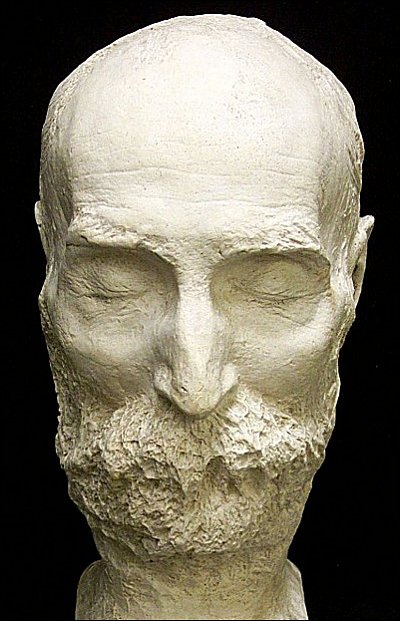
Walt Whitman poem: The Poet
KEMP=MAG poetry magazine
More in: Whitman, Walt
.jpg)
A r t h u r C r a v a n
(1887-1918)
H I E !
Quelle âme se disputera mon corps?
J’entends la musique:
Serai-je entraîné?
J’aime tellement la danse
Et les folies physiques
Que je sens avec évidence
Que, si j’avais été jeune fille,
J’eusse mal tourné.
Mais, depuis que me voilà plongé
Dans la lecture de cet illustré,
Je jurerais n’avoir vu de ma vie
D’aussi féeriques photographies:
L’océan paresseux berçant les cheminées,
Je vois dans le port, sur le pont des vapeurs,
Parmi des marchandises indéterminées,
Les matelots se mêler aux chauffeurs;
Des corps polis comme des machines,
Mille objets de la Chine,
Les modes et les inventions;
Puis prêts à traverser la ville,
Dans la douceur des automobiles,
Les poètes et les boxeurs.
Ce soir, quelle est ma méprise,
Qu’avec tant de tristesse,
Tout me semble beau?
L’argent qui est réel,
La paix, les vastes entreprises,
Les autobus et les tombeaux;
Les champs, le sport, les maîtresses,
Jusqu’à la vie inimitable des hôtels.
Je voudrais être à vienne et à Calcutta,
Prendre tous les trains et tous les navires,
Forniquer toutes les femmes et bâfrer tous les plats.
Mondain, chimiste, putain, ivrogne, musicien, ouvrier, peintre, acrobate, acteur;
Vieillard, enfant, escroc, voyou, ange et noceur;
Millionnaire, bourgeois, cactus, girafe ou corbeau;
Lâche, héros, nègre, singe, Don Juan, souteneur, lord, paysan, chasseur, industriel,
Faune et flore:
Je suis toutes les choses, tous les hommes et tous les animaux!
.jpg)
Que faire?
Essayons du grand air,
Peut-être y pourrai-je quitter
Ma funeste pluralité!
Et tandis que la lune,
Par delà les marronniers,
Attelle ses lévriers,
Et, qu’ainsi qu’en un kaléidoscope,
Mes abstractions
Elaborent les variations
Des accords
De mon corps,
Que mes doigts collés
Au délice de mes clés
Absorbent de fraîches syncopes,
Sous des motions immortelles
Vibrent mes bretelles;
Et, piéton idéal
Du Palais-Royal,
Je m’enivre avec candeur
Même des mauvaises odeurs.
Plein d’un mélange
D’éléphant et d’ange,
Mon lecteur, je balade sous la lune
Ta future infortune,
Armée de tant d’algèbre,
Que, sans désirs sensuels,
J’entrevois, fumoir du baiser,
Con, pipe, eau, Afrique et repos funèbre,
Derrière les stores apaisés,
Le calme des bordels.
Du baume, ô ma raison!
Tout Paris est atroce et je hais ma maison.
Déjà les cafés sont noirs.
Il me reste, ô mes hystéries!
Que les claires écuries
Des urinoirs.
Je ne puis plus rester dehors.
Voici ton lit; sois bête et dors.
Mais, dernier des locataires,
Qui se gratte tristement les pieds,
Et, bien que tombant à moitié,
Si j’entendais sur la terre
Retentir les locomotives,
Que mes âmes pourtant redeviendraient attentives!
.jpg)
KEMP=MAG poetry magazine
More in: Cravan, Arthur
.jpg)
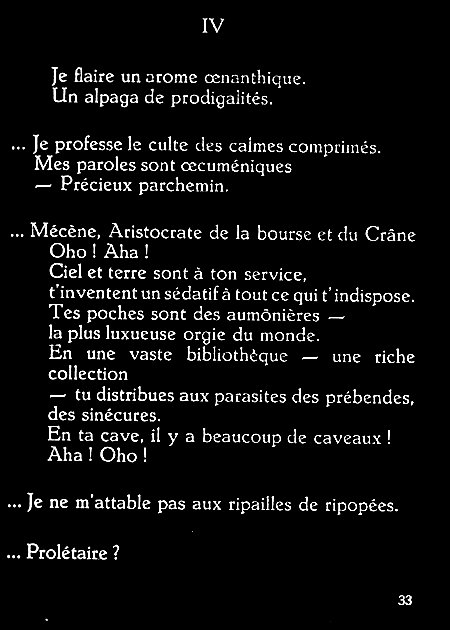
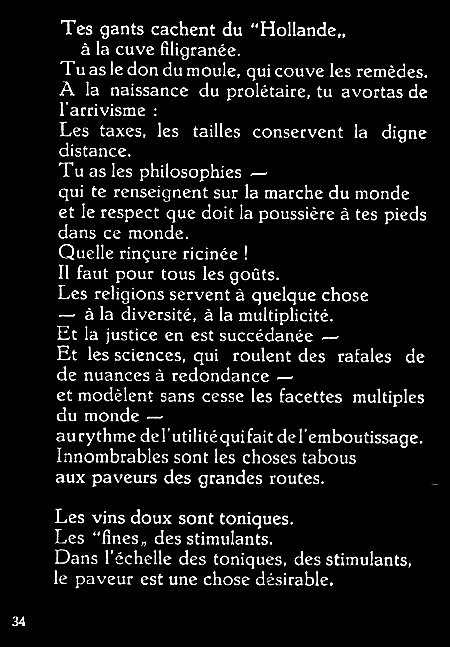
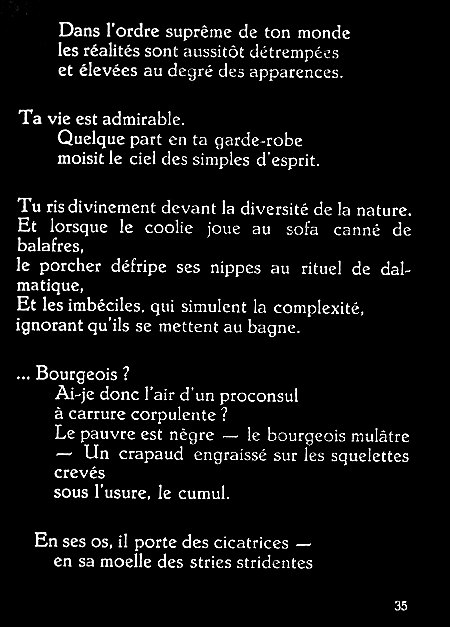
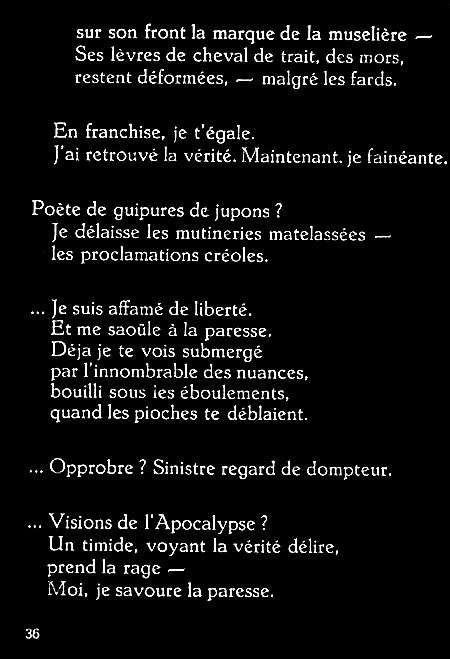

Clément Pansaers
(1885-1922)
L’APOLOGIE DE LA PARESSE 1917
Chapitre IV
![]()
KEMP=MAG POETRY MAGAZINE
More in: Pansaers, Clément

Ed Schilders over
poëziebloemlezing Henny Vrienten
Een jonge vrouw verdrinkt zich circa 1880 in de Seine. Bij gebrek aan een naam wordt ze ‘De onbekende van de Seine’ genoemd. De glimlach op haar dode gelaat zal tientallen schrijvers fascineren. In Zwaan kleef aan vermeldt samensteller Henny Vrienten dat er minstens acht Nederlandse dichters verzen aan haar gewijd hebben. Vier daarvan zijn in het boek opgenomen. Daarmee is ‘De onbekende van de Seine’ een voorbeeld van Vrientens indrukwekkende belezenheid, maar niet – hoe mooi de gedichten ook aan elkaar kleven – typisch voor de opzet van de bundel.
Het grootste deel van Zwaan kleef aan bestaat uit gedichten die ‘onbedoeld’ naar elkaar verwijzen. Dat levert verrassende en meestal spannende combinaties op. Pierre Kemp en Emily Dickinson. Wie had dat gedacht? Hij over zijn ‘Nachtverlangen’, zij over haar ‘Wild night!’ Of de bijna boosaardige combinatie van Felix Timmermans’ zoetgevooisde lentegedicht ‘Uitkoom’ met de cynische ‘Lilalente’ van Ilja Leonard Pfeijffer. De opzet beperkt zich niet tot zulke duo’s. ‘Poëzie lezen is voor mij een reis van gedicht naar gedicht’, schrijft Vrienten in de inleiding. Zo gaan onderwerpen en motieven reeksen vormen. Leerlingen in een schoolklas, de schooljuf, het kind, vaderschap. Je hebt nog maar net met M. Nijhoff langs de waterkant gezeten, of Anthonie Donker haalt een glimlach uit de Seine op.
Behalve keuzeheer is Henny Vrienten ook de reisleider die de monumenten en curiosa van commentaar voorziet. Nauwelijks analyserend maar met des te meer ruimte voor bewondering en koestering. Dat werkt zeer aanstekelijk. De lezer zal soms even een excursietje willen maken naar de eigen boekenkast. Na het gedicht waarin Ingmar Heytze een spijkerbroek wil zijn, kon ik het niet laten Gerrit Krols ‘Over het uittrekken van een broek’ nog eens te bezoeken. Waarna ik probleemloos weer kon instappen bij het kontje ‘in een hele strakke broek’ dat Martin Bril in ‘Groningen’ zag.
Zwaan kleef aan – Een kettingreactie
Henny Vrienten
De Harmonie; 95 pagina’s; 16 euro
ISBN 978 90 6169 880 7
Ed Schilders over poëziebloemlezing Henny Vrienten
Eerder gepubliceerd in de boekenbijlage Cicero van de Volkskrant
© Ed Schilders
fleursdumal.nl magazine
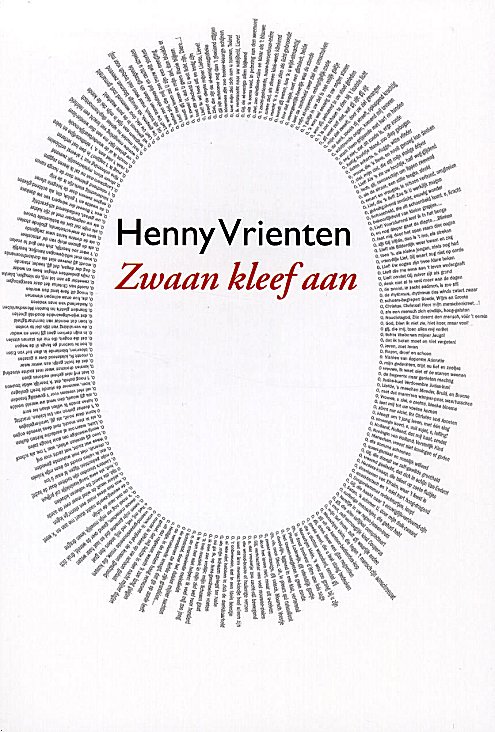
More in: Archive U-V, Ed Schilders
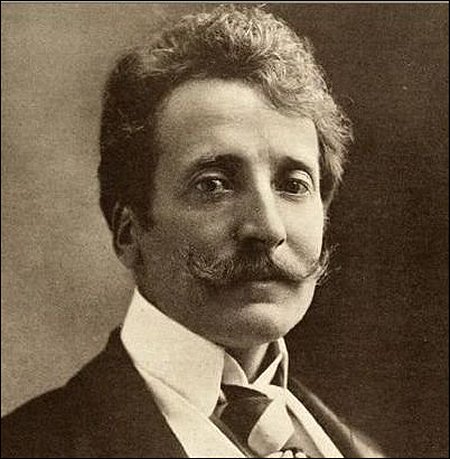
Georges Rodenbach
(1855-1898)
S e s Y e u x
Ses yeux où se blottit comme un rêve frileux,
Ses grands yeux ont séduit mon âme émerveillée,
D’un bleu d’ancien pastel, d’un bleu de fleur mouillée,
Ils semblent regarder de loin, ses grands yeux bleus.
Ils sont grands comme un ciel tourmenté que parsème
– Par les couchants d’automne et les tragiques soirs –
Tout un vol douloureux de longs nuages noirs ;
Grands comme un ciel, toujours mouvant, toujours le même !
Et cependant des yeux, j’en connais de plus beaux
Qui voudraient sur mes pas promener leurs flambeaux,
Mais leur éclat répugne à ma mélancolie.
Les uns ont la chaleur d’un ciel oriental
D’autres le mol azur des lointains d’Italie
Mais les siens me sont chers ainsi qu’un ciel natal.
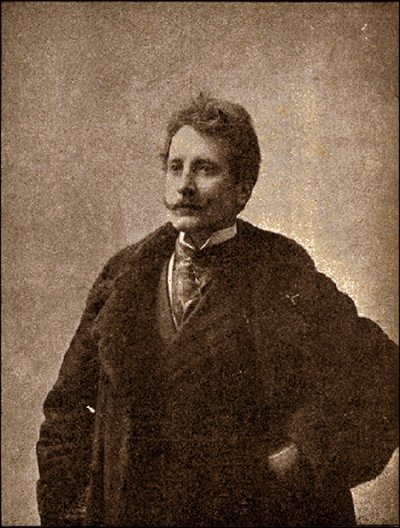
Georges Rodenbach poème: Ses Yeux
KEMPIS MAG poetry magazine
More in: Archive Q-R
Thank you for reading Fleurs du Mal - magazine for art & literature